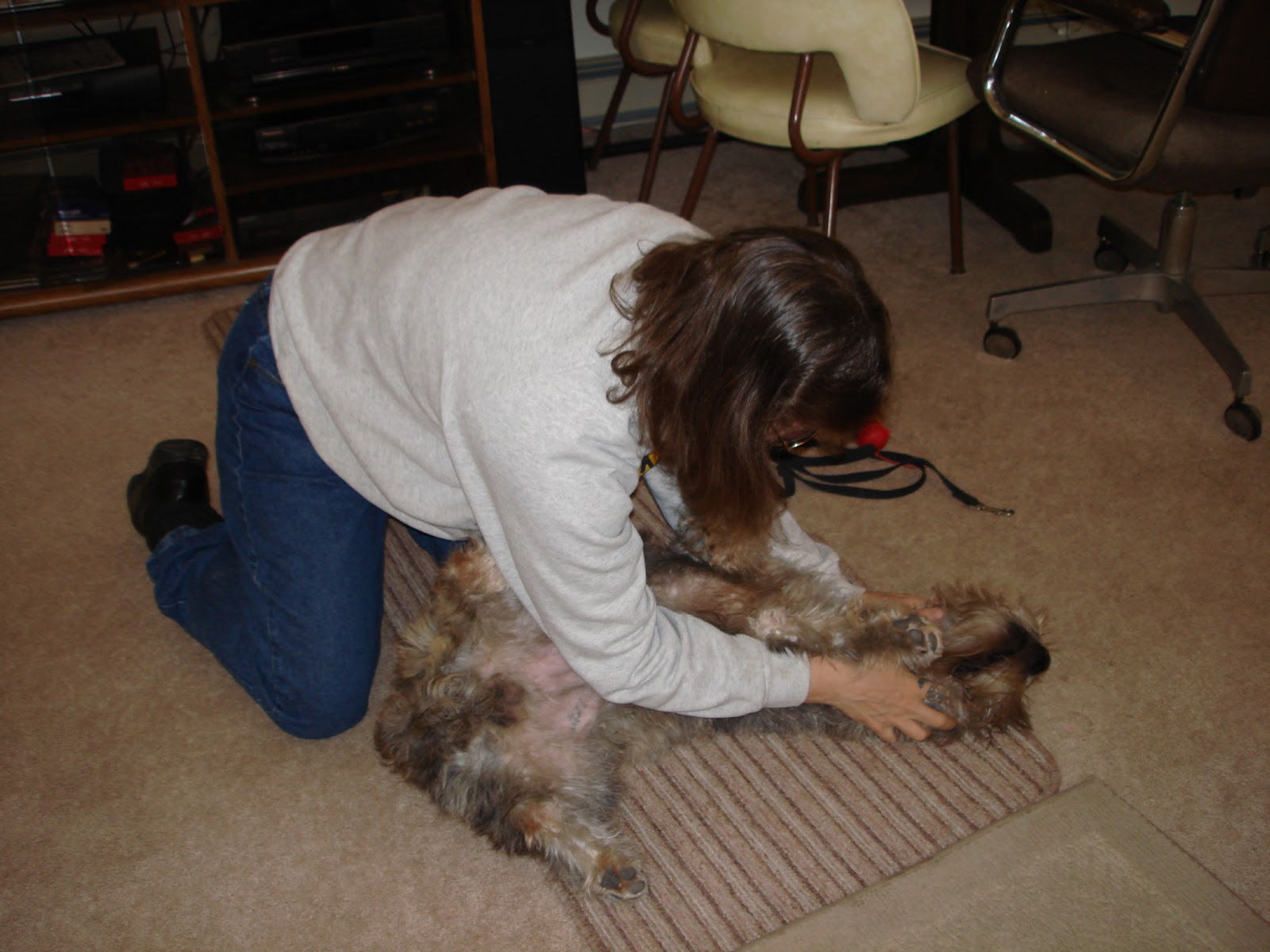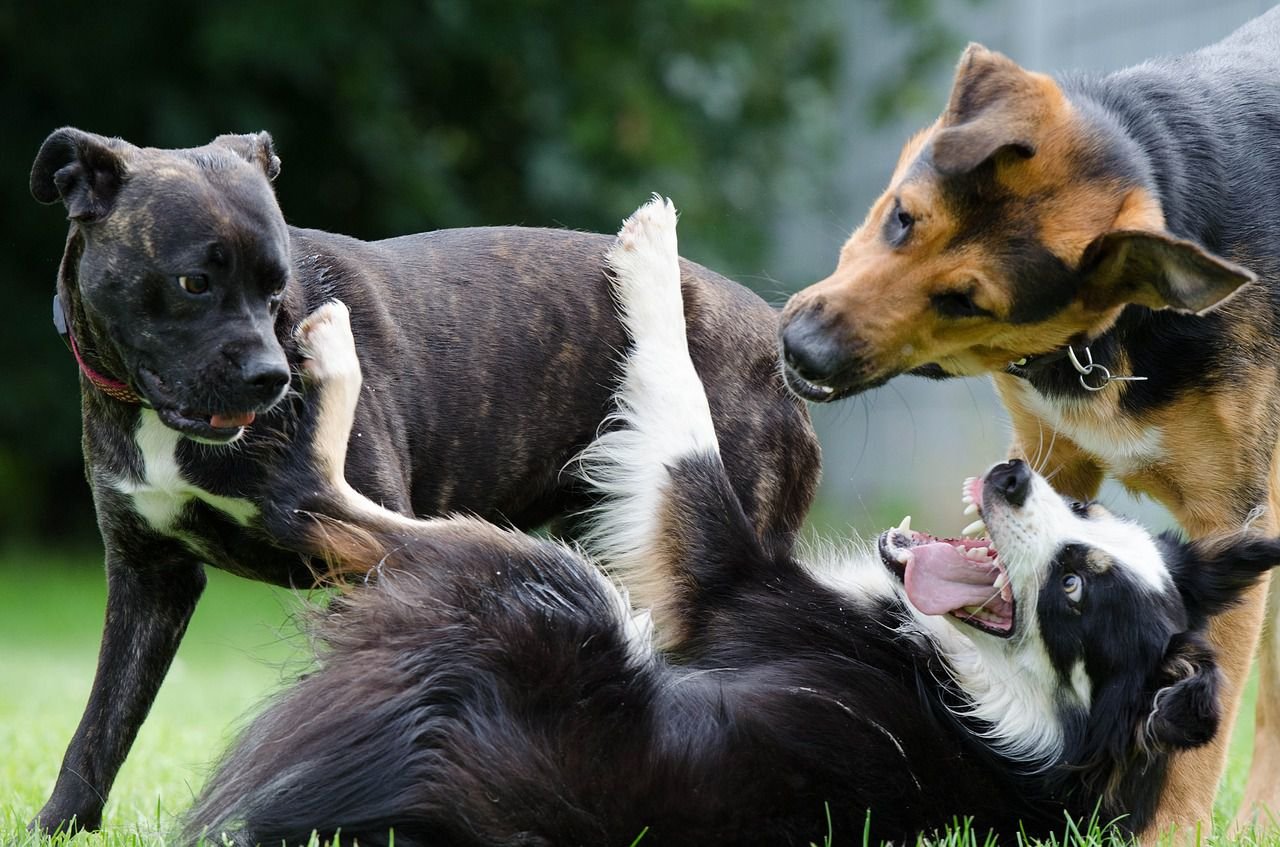Dog owners should know that the alpha roll is an outdated and potentially dangerous training technique. However, many still believe it establishes dominance and control over their dogs.
In reality, this method can lead to fear, aggression, and negative behavioural issues in dogs. Dog owners must understand the negative implications of using the alpha roll and seek alternative and positive training methods that promote trust and respect between them and their furry companions.
Educating oneself about dog behaviour and training techniques can lead to a harmonious and fulfilling relationship with our canine friends.
Understanding The Alpha Roll Technique
Discover what every dog owner should know about the alpha roll technique, which aims to establish dominance over a pet. Explore the benefits, risks, and alternatives to make an informed decision for your furry companion.
Definition Of The Alpha Roll
The alpha roll is a controversial training technique some dog owners use to establish dominance over their dogs. This technique involves forcibly rolling the dog onto its back and holding it until it submits. Advocates of this technique believe that it helps to assert the owner’s authority and establish a pack hierarchy. However, it is essential to note that the alpha roll is a highly debated and widely criticized method.
Origins Of The Alpha Roll Technique
The alpha roll technique is based on the concept of the “alpha wolf,” popularized by the studies of wolf behaviour conducted by Rudolph Schenkel in the 1940s. These studies suggested that wolves in a pack have a strict hierarchical structure, with an alpha pair at the top and other members following their lead. Some dog trainers and owners believe that if dogs are descendants of wolves, similar hierarchical relationships should exist within dog-human relationships. As a result, the alpha roll technique was born.
However, it is essential to understand that dogs are not wolves. They have been domesticated for thousands of years, and their behaviour may differ significantly from that of their wild ancestors. Recent studies have challenged the notion that dogs naturally establish dominance hierarchies with humans. Dogs have evolved into highly social animals that thrive on positive reinforcement and cooperation rather than coercion and dominance.
In conclusion, the alpha roll technique is a controversial and widely criticized training method. While it may have originated from theories about wolf behaviour, dogs and wolves differ in several aspects, including their social structures and behaviour. Dog owners must consider more modern and science-based training methods focusing on positive reinforcement and creating a solid bond with their canine companions. A professional dog trainer can provide valuable guidance on practical and humane training techniques to ensure the dog’s well-being and a positive relationship between the dog and its owner.
Please note that the content above is for instructional purposes only and is not meant as professional advice. It is always recommended to consult with a professional dog trainer or veterinary behaviourist for personalized guidance on training methods.

Controversy Surrounding The Alpha Roll
The Alpha Roll, a controversial training method some dog owners use, has generated much debate among trainers, behaviourists, and dog enthusiasts. While some believe it is an effective technique that establishes dominance and discipline, critics argue that the alpha roll can be harmful and counterproductive to a dog’s well-being. Understanding both sides of the argument is crucial for dog owners who want to make informed decisions about their pet’s training methods.
Critics’ Arguments Against The Alpha Roll
Critics of the alpha roll emphasize that it relies on outdated dominance theory and can potentially lead to negative consequences. They argue that:
- The alpha roll is based on the misconception that dogs are pack animals that need to be dominated by their human owners, which is not supported by current research.
- Forcing a dog into a submissive position through physical restraint may trigger fear, anxiety, and aggression, undermining trust between the dog and its owner.
- Applying an alpha roll to a fearful or anxious dog can worsen its behaviour and exacerbate its emotional state.
- Using forceful techniques like the alpha roll can lead to unintended consequences, such as injuries to the dog and the person implementing the training method.
Scientific Research On The Effectiveness Of The Alpha Roll
Scientific studies investigating the alpha roll as a training method have provided insights into its effectiveness:
- A study by Dr Sophia Yin, a renowned veterinary behaviourist, found that alpha rolls increased aggressive responses from dogs rather than improving their behaviour.
- Research published in the Journal of Applied Animal Welfare Science suggests that force-based training techniques, including the alpha roll, are less effective in achieving long-term obedience and can negatively impact the dog’s overall well-being.
- Positive reinforcement-based training methods focusing on rewarding desired behaviours have yielded better obedience, trust-building, and mental stimulation results.
Alternative Training Methods
Many experts advocate for alternative, more humane, positive, and effective training methods in shaping a dog’s behaviour. These methods include:
- Positive reinforcement, which involves rewarding desired behaviours with treats, praise, or play, helps the dog associate positive outcomes with the desired behaviour.
- Clicker training, where a clicker sound is used to reinforce good behaviour, acts as a marker for the dog to understand what it did right.
- Reward-based obedience training classes provide structured sessions led by professional trainers emphasizing positive reinforcement techniques.
Dog owners seeking a healthy and harmonious relationship with their canine companions must consider modern, reward-based training methods that prioritize their well-being. By understanding the concerns raised by critics and the evidence from scientific studies, dog owners can make informed decisions about the training techniques they employ.
Considerations For Dog Owners
Dog owners may encounter a controversial training technique called the alpha roll. This method, derived from the concept of alpha dogs in hierarchical pack structures, involves flipping a dog onto its back and holding it down until it submits. However, dog owners need to be aware of the potential risks and dangers associated with the alpha roll and consider alternative training techniques for positive reinforcement. Seeking professional advice is also highly recommended to ensure the well-being and happiness of your furry companion.
Potential Risks And Dangers Of The Alpha Roll
The alpha roll may seem like an assertive method to establish dominance, but it can adversely affect your dog’s mental and physical well-being. It’s crucial to understand the potential risks before considering implementing this technique.
- The alpha roll can lead to increased fear and anxiety in dogs. Being forced into submission can create a negative association with the person who performs it.
- Physical harm may occur during the alpha roll. Dogs can become defensive and may attempt to bite or struggle, potentially causing injury to both the dog and the handler.
- Alpha rolls can strain the trust between you and your dog. Instead of building a strong bond based on mutual respect and trust, the alpha roll may erode the foundation of your relationship and lead to behavioural issues.
Alternative Training Techniques For Positive Reinforcement
Fortunately, there are more effective and humane training techniques that prioritize positive reinforcement and strengthen the bond between you and your dog. These alternatives provide countless benefits while minimizing the risks associated with the alpha roll.
- Positive reinforcement: Using treats, praise, and rewards to encourage desired behaviours helps your dog associate obedience with positive experiences.
- Clicker training: Using a clicker as a marker, combined with rewards, can effectively communicate to your dog what behaviour you desire, making learning enjoyable for them.
- Force-free training methods: Techniques like capturing, shaping, and luring can guide your dog’s behaviour without inducing fear or discomfort.
Seeking Professional Advice
When it comes to training, seeking the guidance of a professional dog trainer or behaviourist can be invaluable. They can provide personalized advice tailored to your dog’s needs and offer alternative methods to address behavioural issues effectively. Additionally, they can help you avoid potentially harmful techniques like the alpha roll, ensuring that you and your dog have a positive training experience.


Frequently Asked Questions For What Dog Owners Should Know About The Alpha Roll
What Is The Alpha Roll Technique And Why Is It Controversial?
The alpha roll technique is used to assert dominance over a dog. It involves pinning the dog on its back until it submits. However, this technique is controversial, as it can cause fear and aggression in dogs and is not recommended by many animal behaviour experts.
Can The Alpha Roll Method Be Effective In Training Dogs?
While some dog owners may claim success with the alpha roll technique, professional dog trainers generally do not recommend it, positive reinforcement and reward-based training methods have proven more effective and humane in teaching dogs desired behaviours.
What Are The Potential Risks Of Using The Alpha Roll Technique?
Using the alpha roll technique can negatively affect the dog and the owner. It can lead to fear, anxiety, and aggression in dogs, and it can also damage the trust and bond between the dog and the owner.
It is essential to consider safer and more ethical training methods.
Are There Better Alternatives To The Alpha Roll Technique?
Yes, several humane and effective alternatives to the alpha roll technique exist. Positive reinforcement training, such as clickers or treats for desired behaviours, is widely recommended. Working with a professional dog trainer can also guide positive training methods that suit your dog’s needs.
Conclusion
To sum up,
By building a solid and healthy relationship with your furry friend, you can create an environment where both of you can thrive. So, leave the alpha roll in the past and embrace compassionate and effective training techniques for a happy and well-behaved canine companion.



